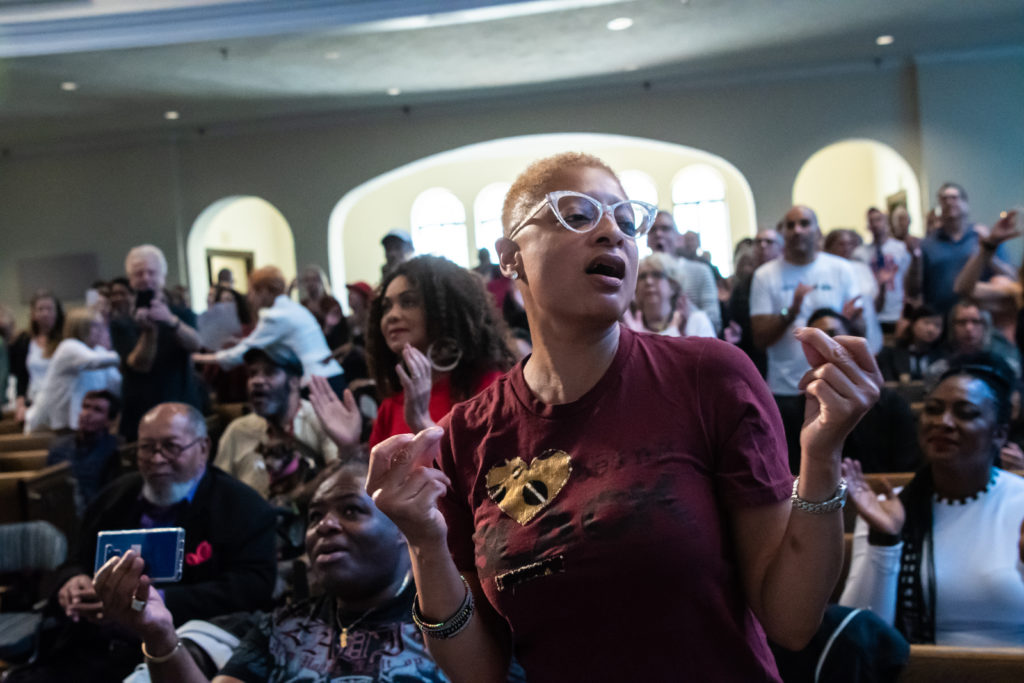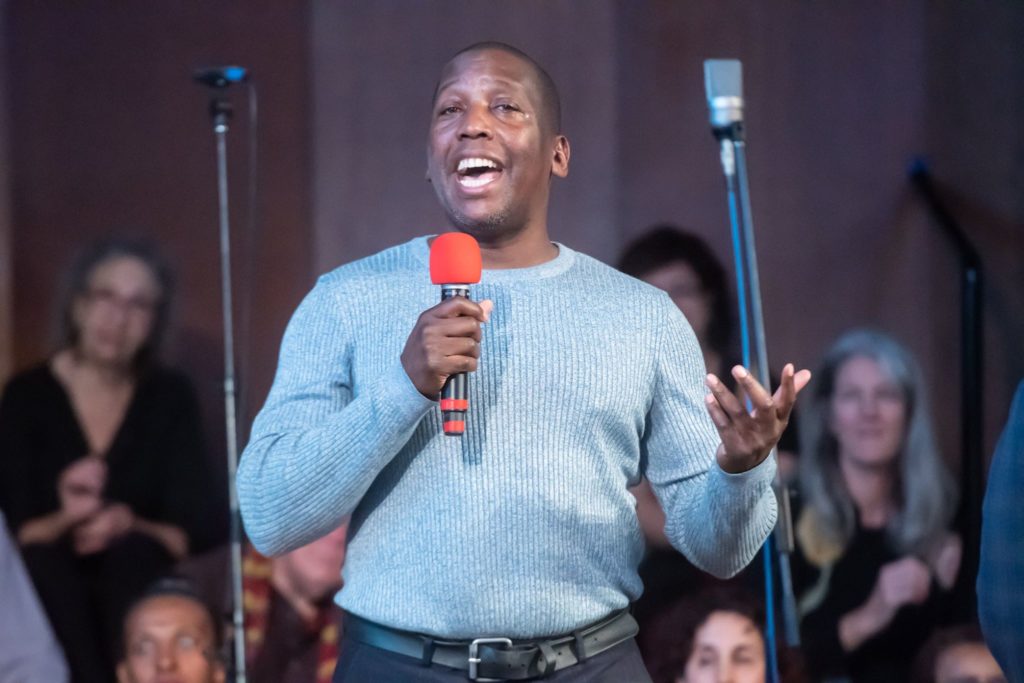Introducing Marvin K. White
Starting in January, Marvin K. White will become the Interim Minister of Celebration at GLIDE. Many people in our congregation have experienced and recognized Marvin’s deep creative and spiritual gifts. He’ll bring those gifts along with his strong commitment to GLIDE’s mission of unconditional love and radical inclusivity as he continues to help lead Sunday Celebrations and be one of the leaders guiding us through an adventurous time of transition.
On December 16, Marvin led Celebration in honoring the spiritual legacy of San Francisco’s very own Disco Super Star – Sylvester. This marked the 30-year anniversary of his passing. Where better than GLIDE to celebrate Sylvester’s time on this earth and shine a light on his lasting impact and the example he left for us today? In the following interview, published originally in GLIDE’s Congregation Connect newsletter and slightly edited for clarity, Marvin speaks to his inspiration as a preacher and the importance of commemorating our queer heroes.
Who is Marvin K. White, MDiv?
A poet, preacher, an arts leader, an arts organizer and a public theologian—those are the kind of identities I lead with. That’s what it says on my mailbox—that’s how I want people to be able to find me.
On the inside, I am a 12-year-old kid who was raised by his mom and grandma. I was creative but not in a way that was encouraged, so I had to really come into it on my own. So, this extension of storytelling by preaching makes sense to me because I have always told stories to myself. I could always find a way to write myself out of an uncomfortable situation.
What was your inspiration for a Sylvester-themed Celebration?
He was a black gay church kid, he came out of the church, he was born in the church. If you listen to his music, it was still church. I want to celebrate and elevate our queer heroes.
In my practice, I am deeply committed to understanding what my role in the divine is and how to make sure that people who are interested in spiritual gifts, no matter what they are, that they find them. That I say something or do something to help them realize their gifts.
When I was 21, I saw Sylvester perform at the Castro Theatre with Two Tons of Fun. The person who took me told me “you need to know this is historic” and honestly, it just changed my life! I was ushered into the larger meaning of what Sylvester meant.

Paula at Sunday Celebration on Cecil’s 89th birthday, September 23, 2018; guest speaker Marvin K. White.
What do you believe Sylvester’s message to be?
You have to activate God on your behalf, and spirituality, and the divine. In a way that’s different from how we are taught in corporate and organized religion: that there is somebody you have to go through to get to it.
It reminds me of what Andy Warhol said, “Don’t think about making art, just get it done. Let everyone else decide if it’s good or bad, whether they love it or hate it. While they are deciding, make even more art.”
One of the things I talked about on Sunday is that each of us is our own tabernacle. We carry with us this fire and this spark and this music that has been passed on to us (by folks who didn’t make it) and whether they physically hand it to you, or you dance with them once and they bumped it into you, or you guys were all on the same dance floor—I mean, that’s why the dance floor is like Pentecost. Everybody gets it at the same time—everybody starts talking in tongues, but everybody can understand each other. That’s what happened with Sylvester’s music on the dance floor.
People like Sylvester—a black, cross-dressing boy from L.A.—people without role models, even we can still come into ourselves. Then, in doing that, we provide inspiration to others to come into themselves as well.
Our identities are our pathways to spirituality. And to our divinity. [They are the] keys to get you into it—not locks to keep you out of it.

Marvin K. White preaching on Thanksgiving 2018.
